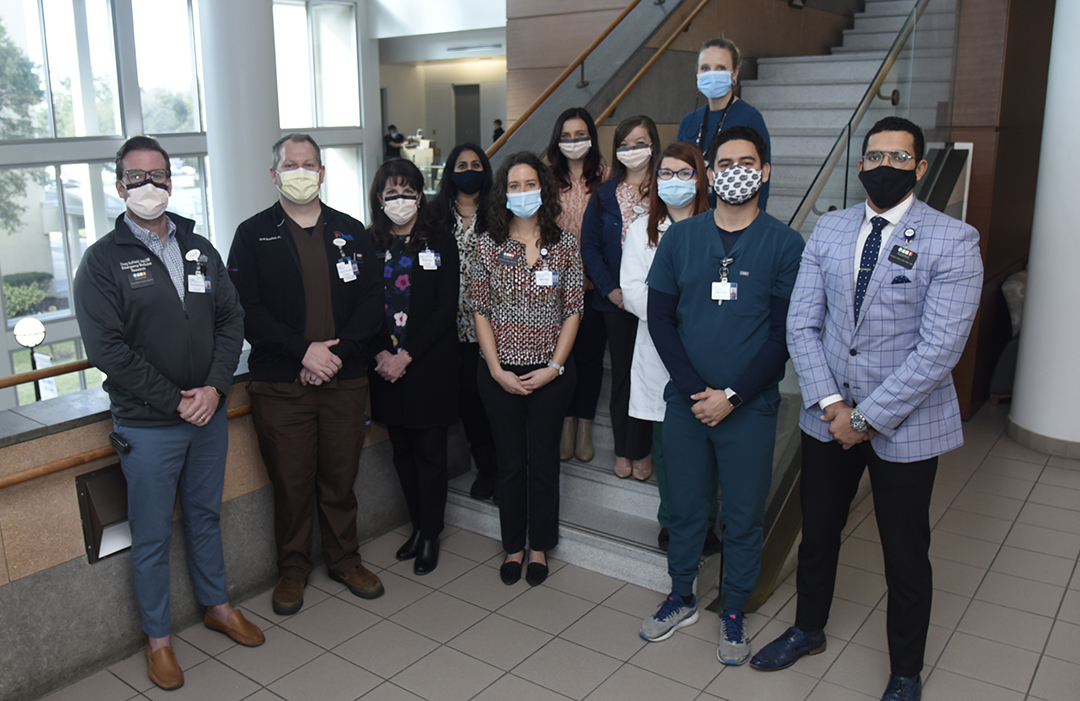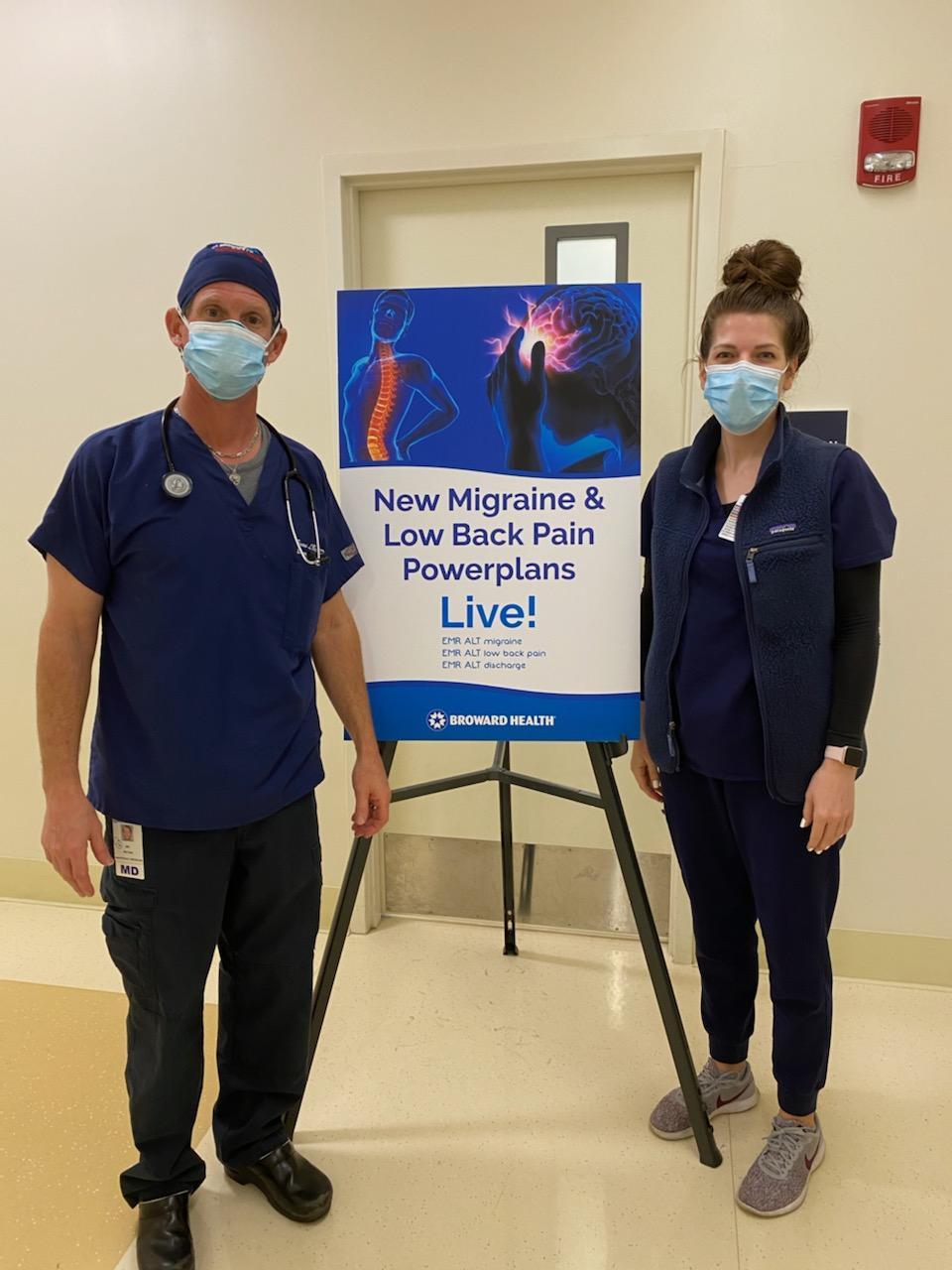Two Florida Health Systems Receive SAMHSA Grants to Implement ED Alternatives to Opioids Program
The number of U.S. deaths and overdoses from opioids continues as a top public health concern, even after the opioid epidemic was declared a public health emergency in 2017. Legislation limiting opioid prescribing has driven a shift from prescription to illicit use, with increases in synthetic opioid use. This troubling problem has been a key issue for the U.S. Department of Health and Human Services and its agencies like the Substance Abuse and Mental Health Services Administration (SAMHSA). National and state data indicate an alarming increase in opioid and other substance abuse overdoses and deaths since the beginning of the COVID-19 pandemic. The pandemic is now being referred to as a national relapse trigger.
During the height of this pandemic, UF Health Jacksonville and Broward Health emergency departments were selected to receive $2.96 million in funding for the new SAMHSA Emergency Department Alternatives to Opioids Demonstration Program. The purpose of this funding is to develop and implement alternatives to opioids for pain management in emergency settings. Only 10 grants were awarded across the U.S. in the first grant cycle.

UF Health Jacksonville PAMI ED-ALT Program
The Pain Assessment and Management Initiative (PAMI) at the University of Florida College of Medicine – Jacksonville is creating a new patient- and provider-focused pain management model. The PAMI ED-ALT project team (pictured above) is a collaboration between emergency medicine, nursing, rehabilitative services, pharmacy and pain management specialities targeting pain conditions such as musculoskeletal and back pain, renal colic, and headaches in adolescents and adults.
The PAMI ED-ALT program includes the implementation of new, comprehensive EMR order panels offering all pharmacologic and non-pharmacologic pain management options in one place and new discharge planning educational materials. New order panels improve providers’ access to a menu of pain management options. Additional key program components include development of a pain coaching and educator model program, and implementation of non-pharmacologic toolkits and supply carts. Patient ED-ALT toolkit options include aromatherapy inhalers, virtual reality viewers to use with smartphones, hot and cold gel packs, acupressure devices for headache, deep breathing exercise instructions, pain scale cards, dosing guides, educational materials, and more.
PAMI ED-ALT is the newest addition to the PAMI program founded in 2014 by Phyllis Hendry, M.D., a professor and associate chair for research in the department of emergency medicine, and Sophia Sheikh, M.D., an assistant professor of emergency medicine, medical toxicologist and medical director of the Florida/USVI Poison Information Center – Jacksonville. Dr. Sheikh is the principal investigator for the SAMHSA PAMI ED-ALT program. PAMI’s overall goal is advancing innovation and safety in pain education, patient care and research.
The project submission was a joint effort with PAMI and the UF Center for Data Solutions, led by Jennifer Fishe, M.D., an assistant professor of emergency medicine and CDS director, along with Jennifer Brailsford, Ph.D., an epidemiology analyst, and Rebecca Liao, data analyst. Co-investigator Kendall Webb, M.D., chief medical information officer, and her team assist with development and implementation of order panels and EMR changes. Ashley Norse, M.D., associate chair of emergency department operations, assists with implementation feedback, education and promotion of project adoption by staff and physicians.

Broward Health ED-ALT Program
At Broward Health Medical Center (BHMC) and Broward Health North (BHN), the ED-ALT team is focused on patients presenting to the ED with migraine or low back pain, with additional concentration on patients with low socioeconomic status and/or co-occurring mental health or substance use disorders, or patients living with HIV/AIDS. Evidence-based non-opioid treatment protocols and order-sets were created by the multidisciplinary team of Michelle Krichbaum, PharmD; Neil Miransky, DO; Martina Holder, PharmD, BCPS; Evan Boyar, MD, MSE, FAAEM and Julie Aristyld, MSW, MPA.
Treatment options in the migraine order set include fluids, acetaminophen, oral and parenteral NSAIDs, abortifacients (sumatriptan or dihydroergotamine), and antiemetics with efficacy in migraine pain. Treatment resistant options include parenteral magnesium, valproic acid, dexamethasone and haloperidol. Non-opioid treatments in the low back pain order set include oral, parenteral and topical analgesics, muscle relaxants, gabapentin for neuropathic pain, and trigger point injections.
The order sets include guidance for escalation of treatment on presentation, symptomology and progression. Additionally, both order sets have relevant laboratory and radiology orders, as well as optional referrals to neurology, psychiatry or pain management. The order sets also include standard referrals to the pharmacy team and social worker.
To date, the team has trained 145 providers on the new protocols and impacted 67 patients with the use of new panels. Using baseline data from 2019 and 2020, the team found that opioid prescribing for patients with low back pain or migraine treated with the new pain management protocols has been reduced.
Pictured above: Broward Health Medical Center ED-ALT team Michelle Krichbaum, PharmD and Neil Miransky, DO.
Pictured below: Broward Health North ED-ALT team Martina Holder, PharmD, BCPS and Evan Boyar, MD, MSE, FAAEM

This article is part of the following sections:












